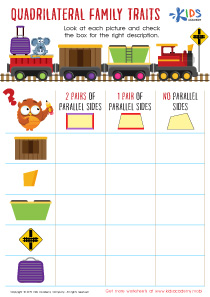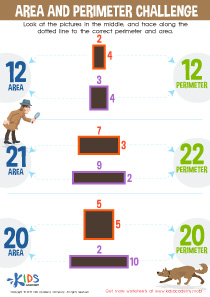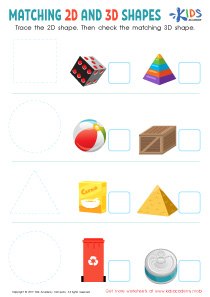Fractions of Shapes Worksheets for Ages 7-9
38 filtered results
-
From - To
Our engaging Fractions of Shapes Worksheets for ages 7-9 are designed to make learning fun and interactive. Tailored to young learners, these worksheets simplify the concept of fractions using visual aids and shape-based exercises. Students will enhance their understanding of fractions by identifying and coloring portions of various shapes. These activities not only reinforce fundamental math skills but also foster critical thinking and spatial awareness. Perfect for classroom use or homeschooling, our printable worksheets come with answer keys for easy assessment. Give your child a solid foundation in math with our colorful and educational fraction worksheets!
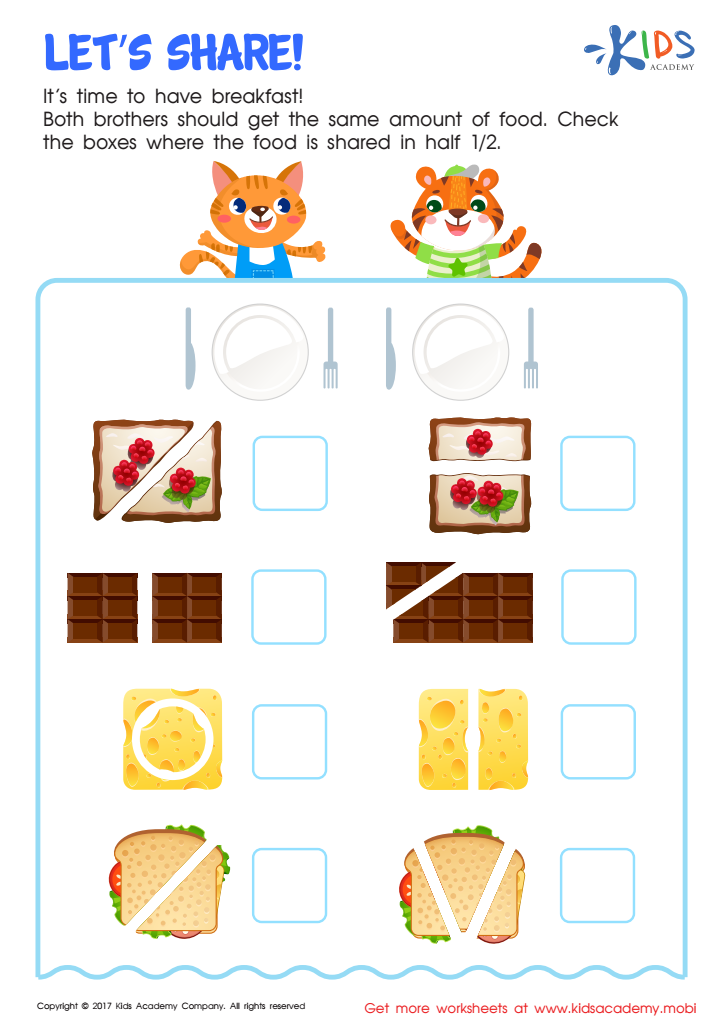

Let's Share Worksheet
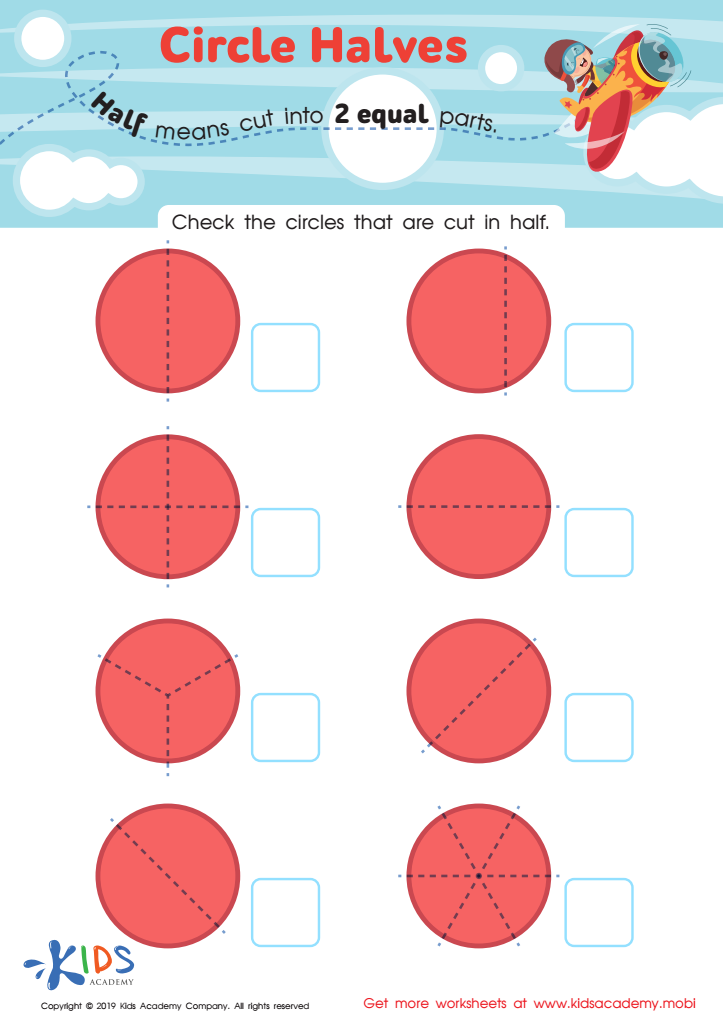

Circle Halves Worksheet
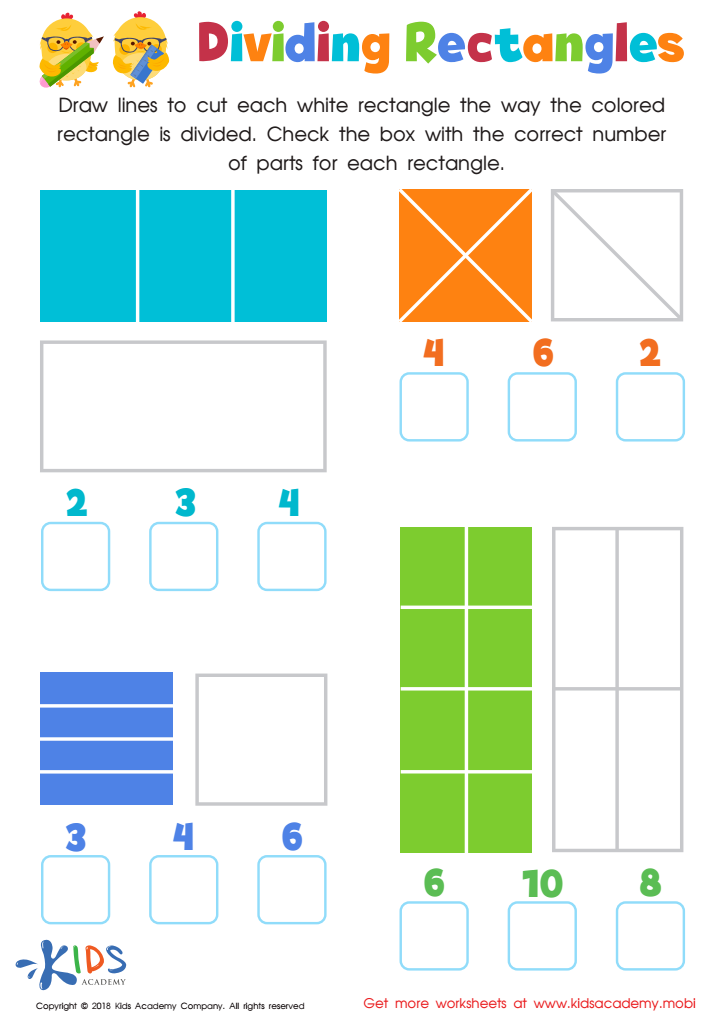

Dividing Rectangles Worksheet
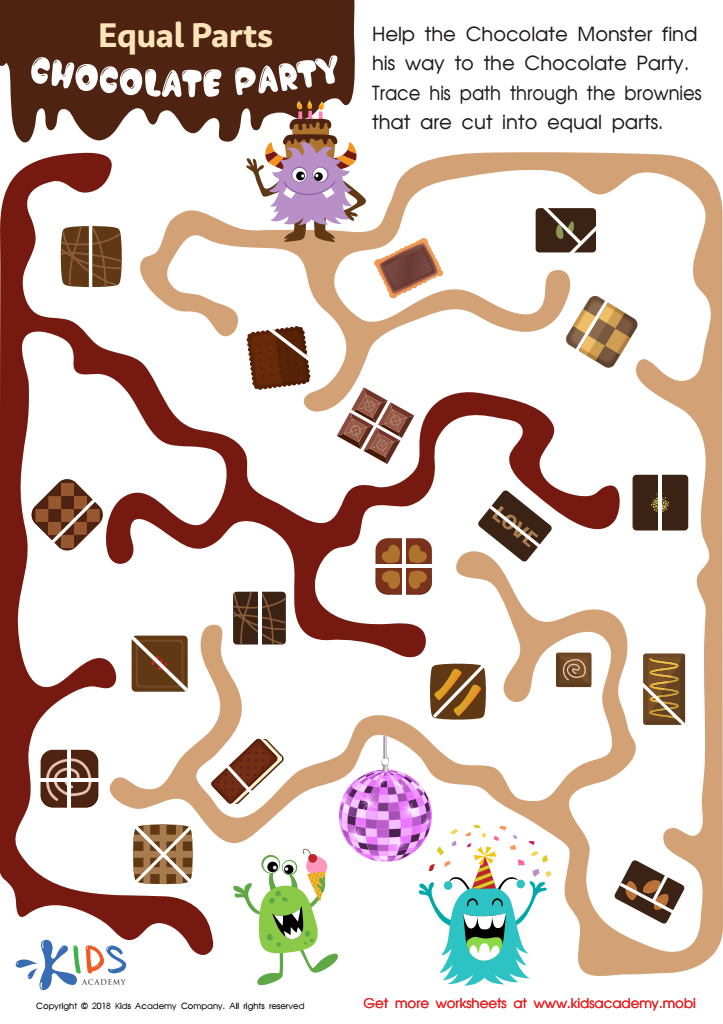

Equal Parts: Chocolate Party Worksheet
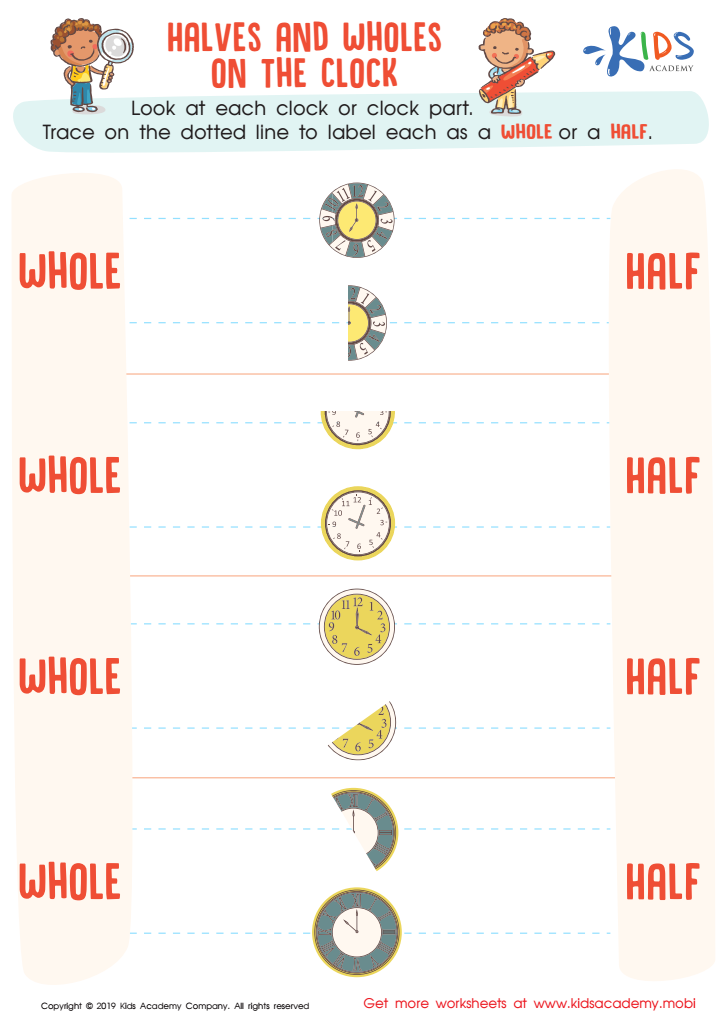

Halves and Wholes on the Clock Worksheet
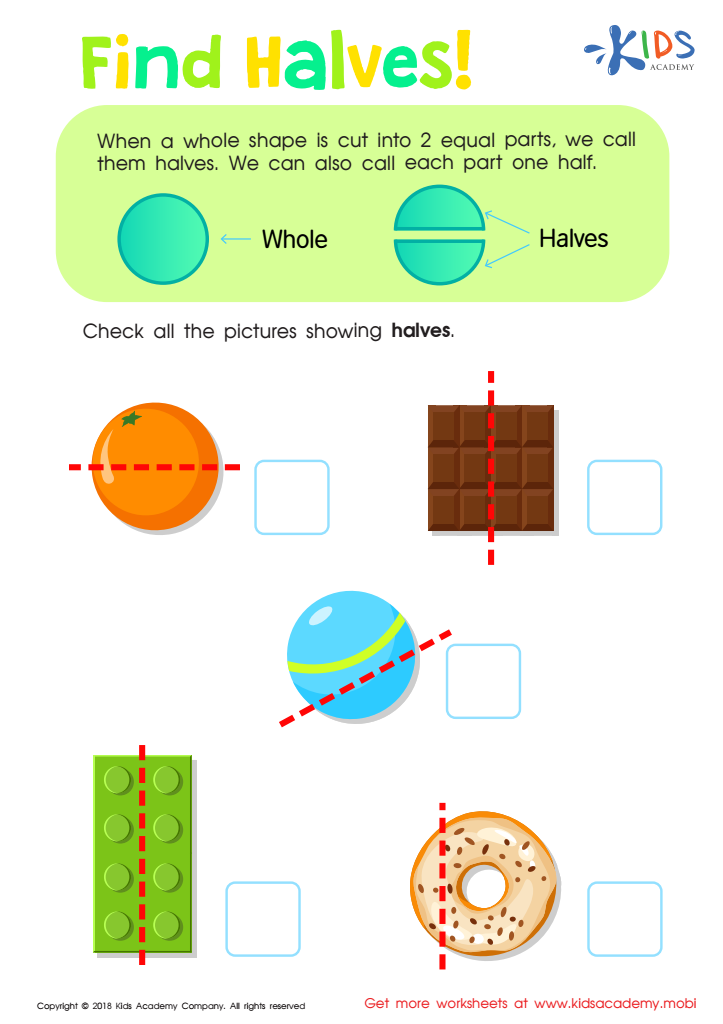

Find Halves Worksheet
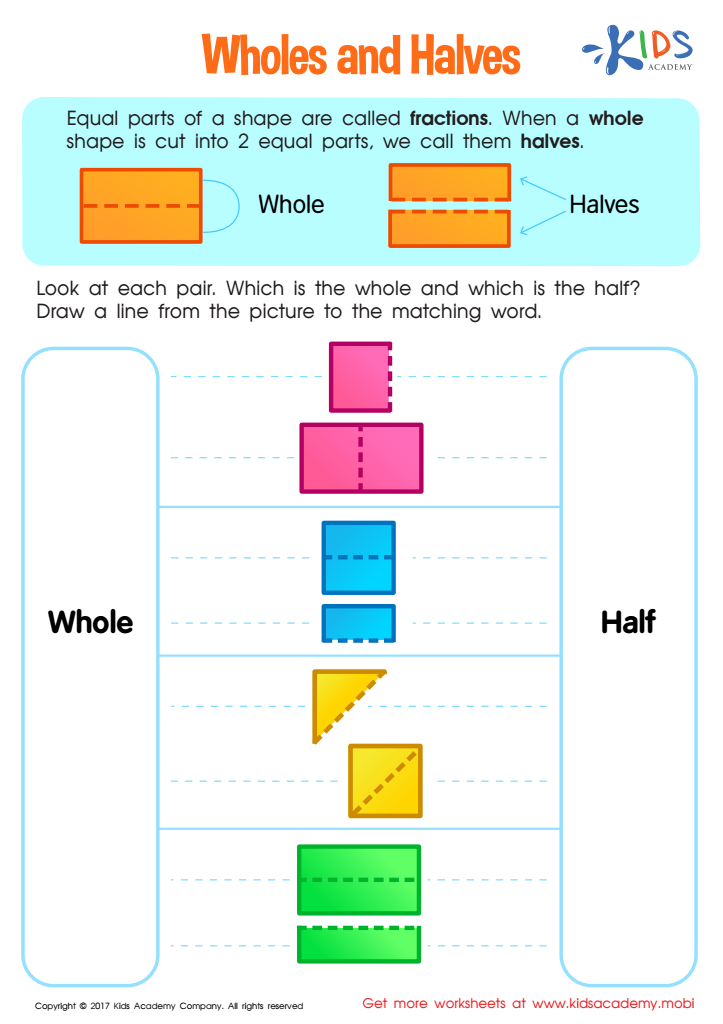

Wholes and Halves Worksheet
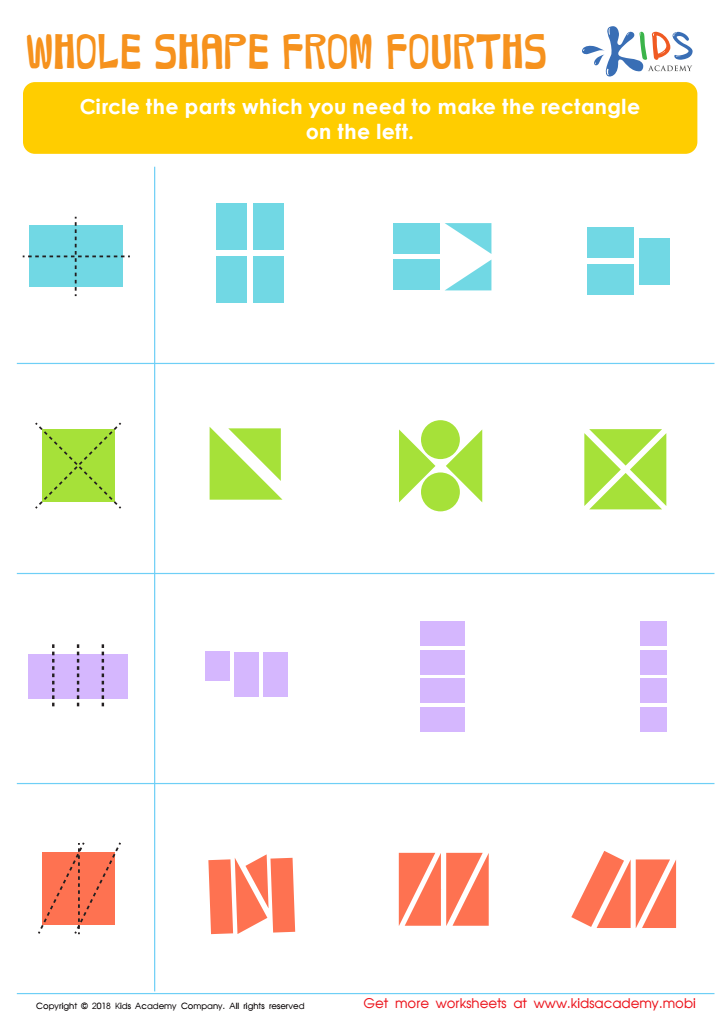

Whole Shape from Fourths Worksheet
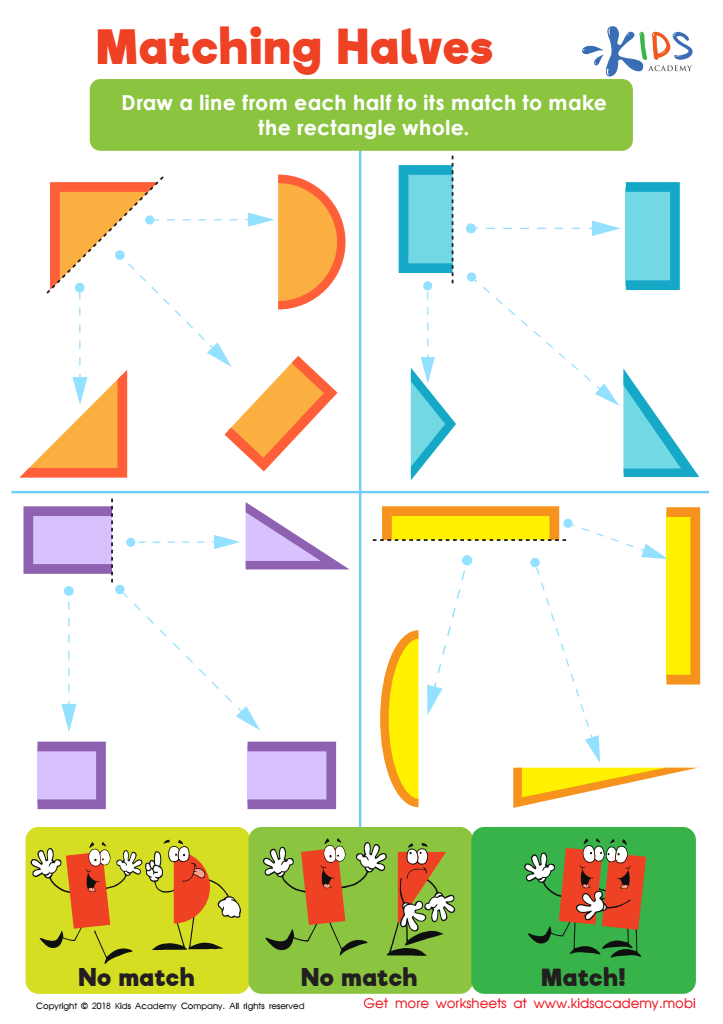

Matching Halves Worksheet
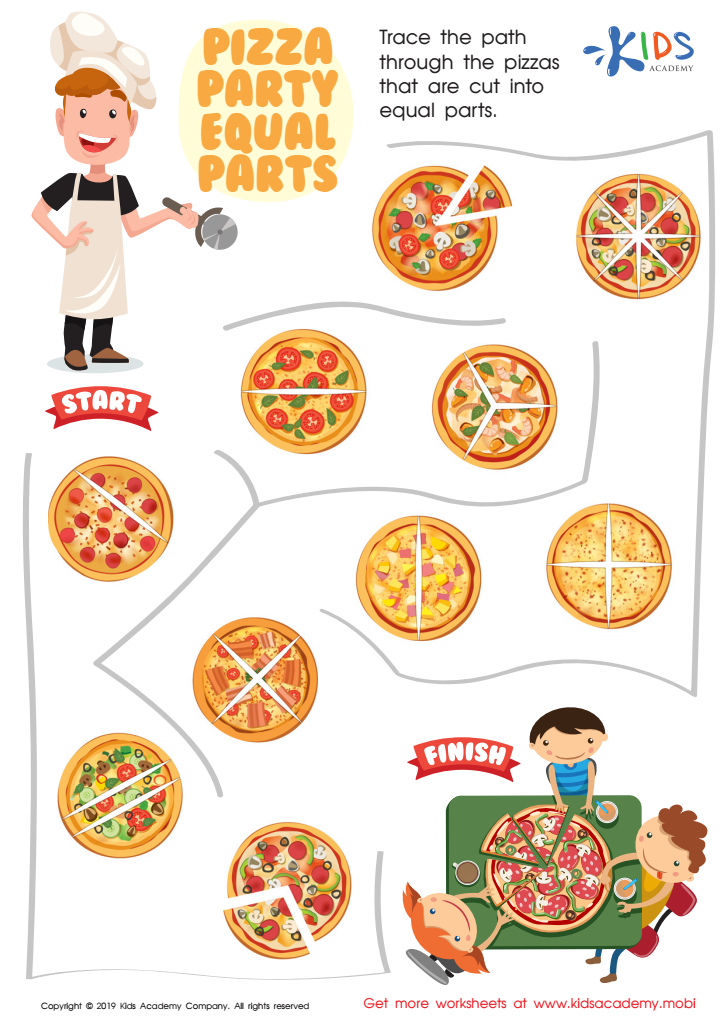

Pizza Party Equal Parts Worksheet
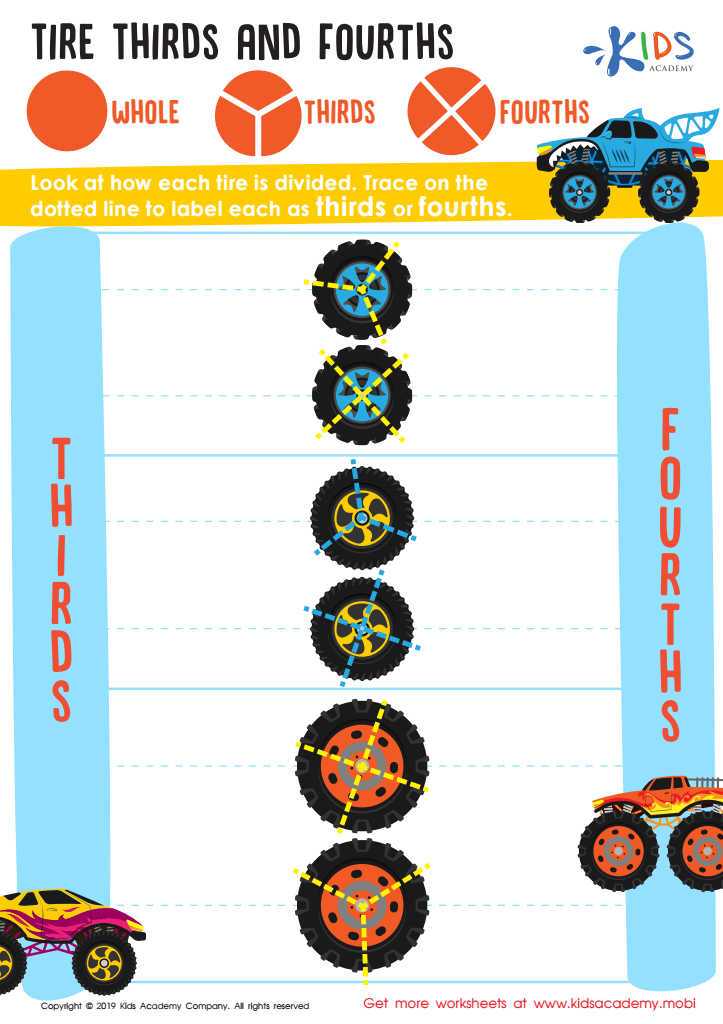

Tire Thirds and Fourths Worksheet
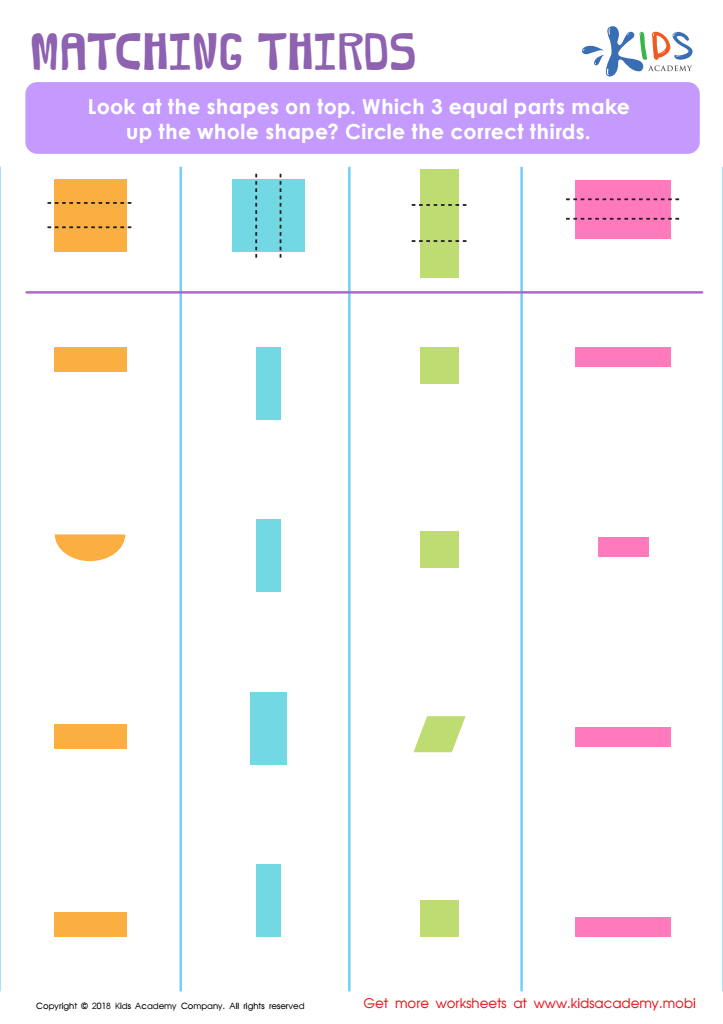

Matching Thirds Worksheet
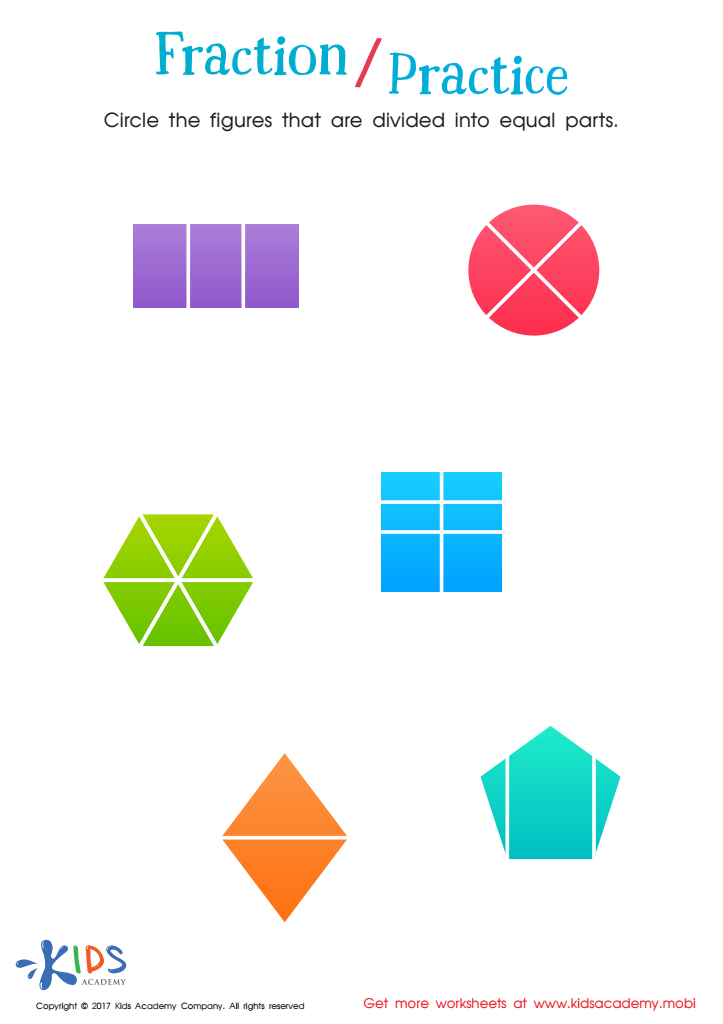

Fractions: Shapes Worksheet
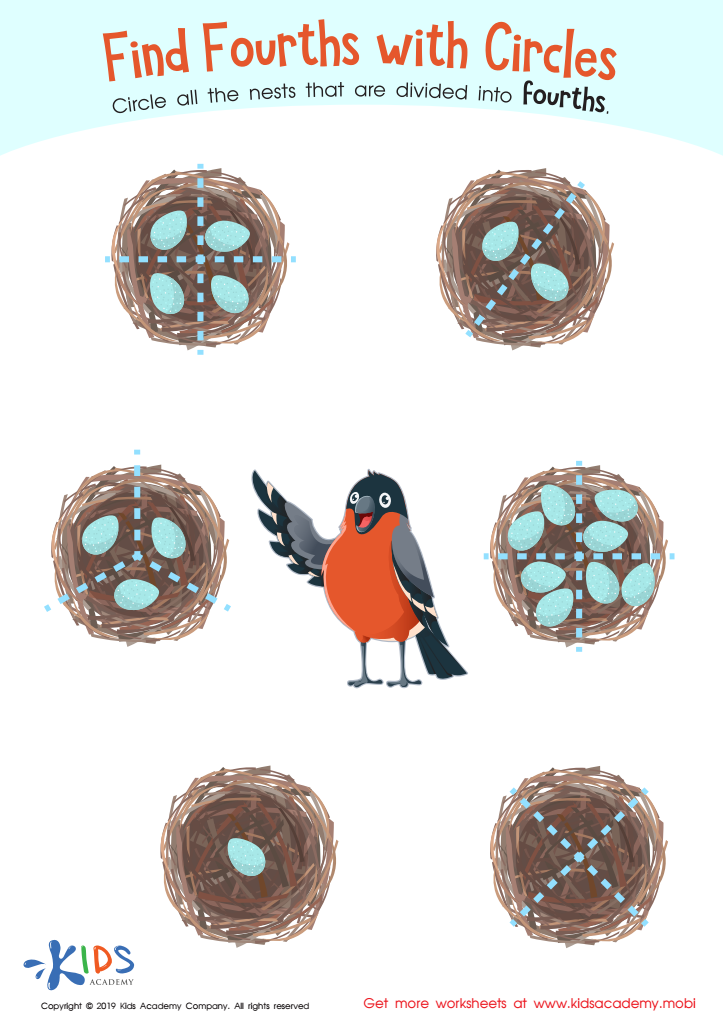

Find Fourths Circles Worksheet
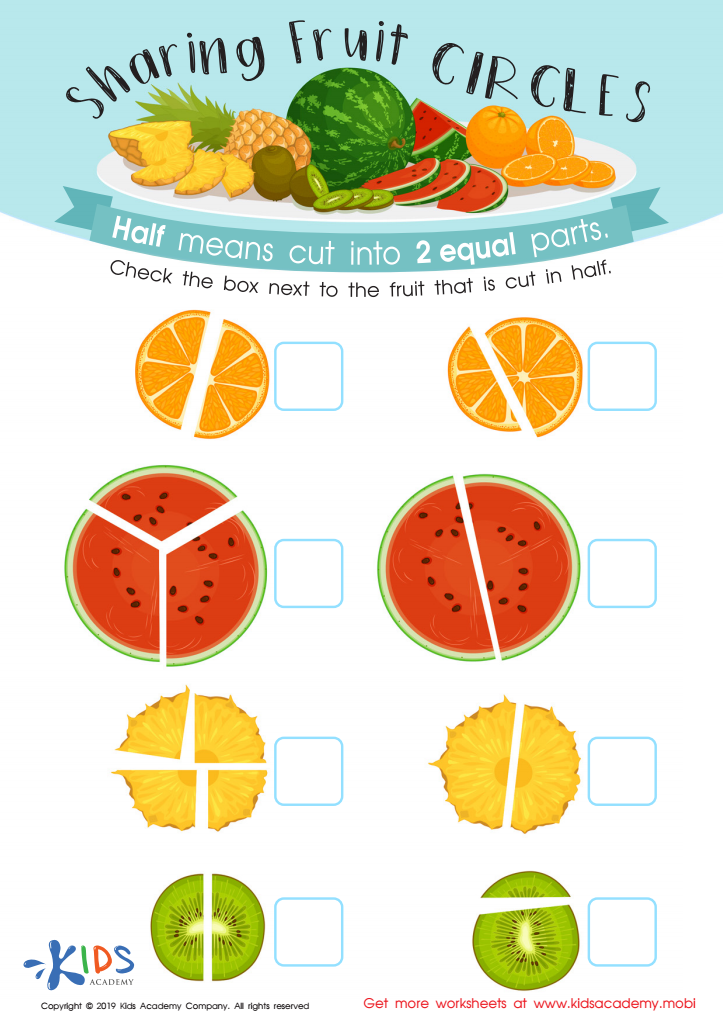

Sharing Fruit Circles Worksheet
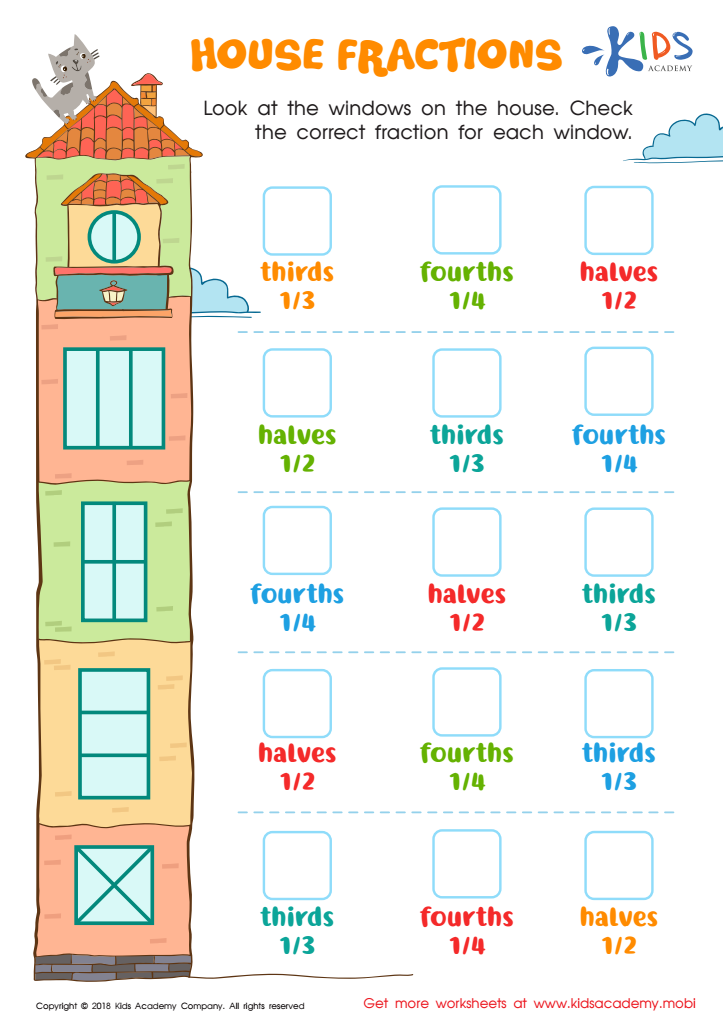

House Fractions Worksheet
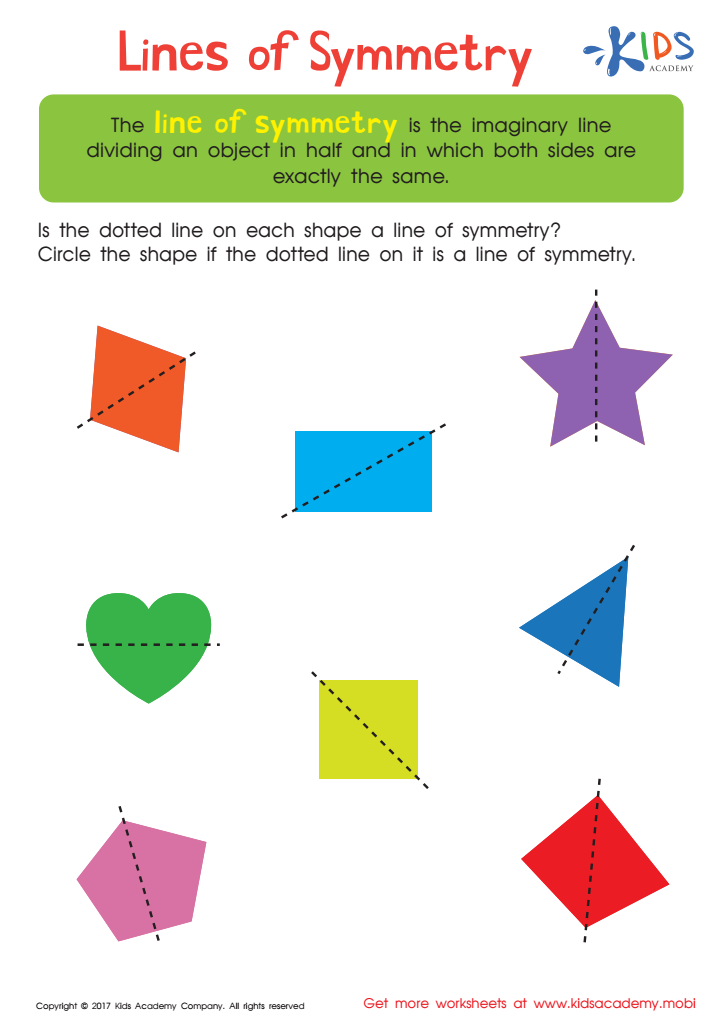

Lines of Symmetry Printable
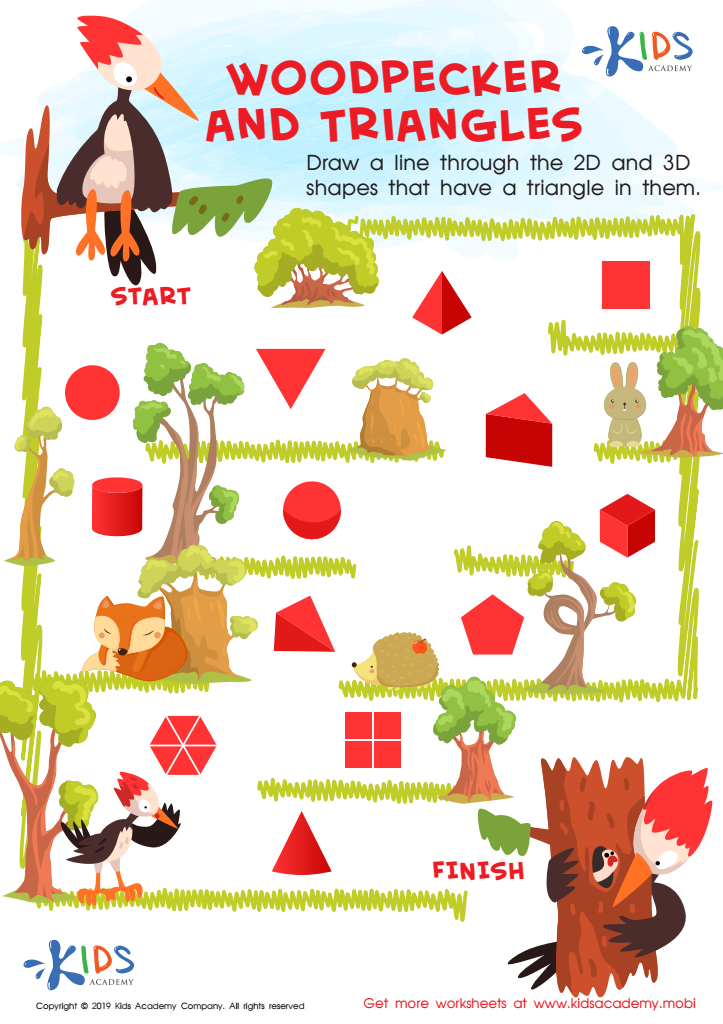

Woodpecker and Triangles Worksheet
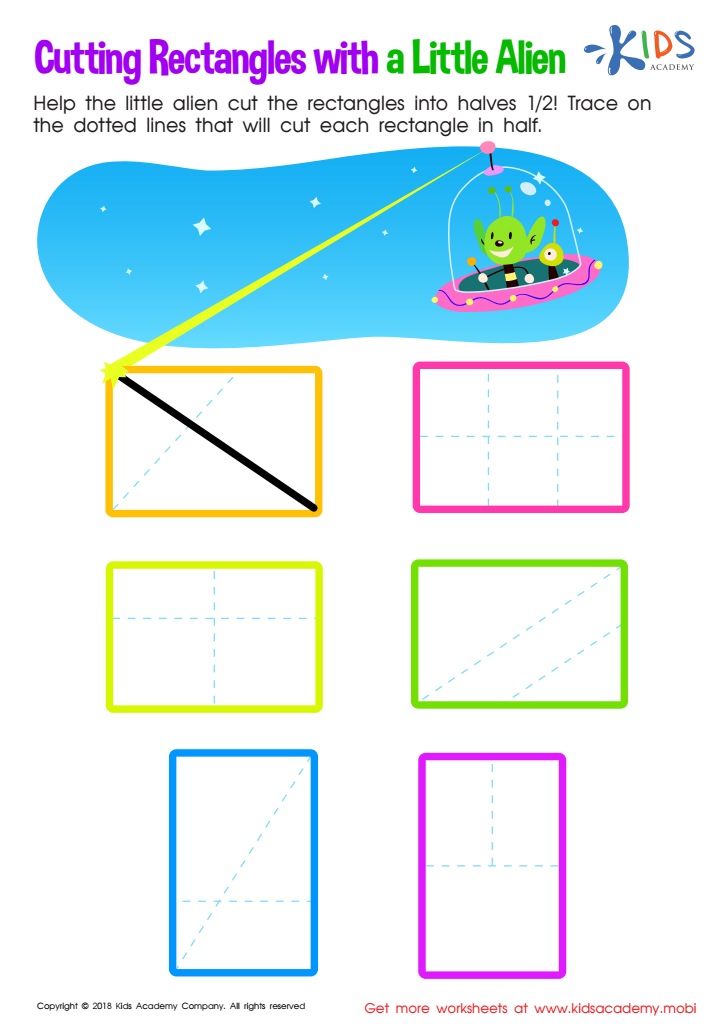

Cutting Rectangles with Alien Worksheet
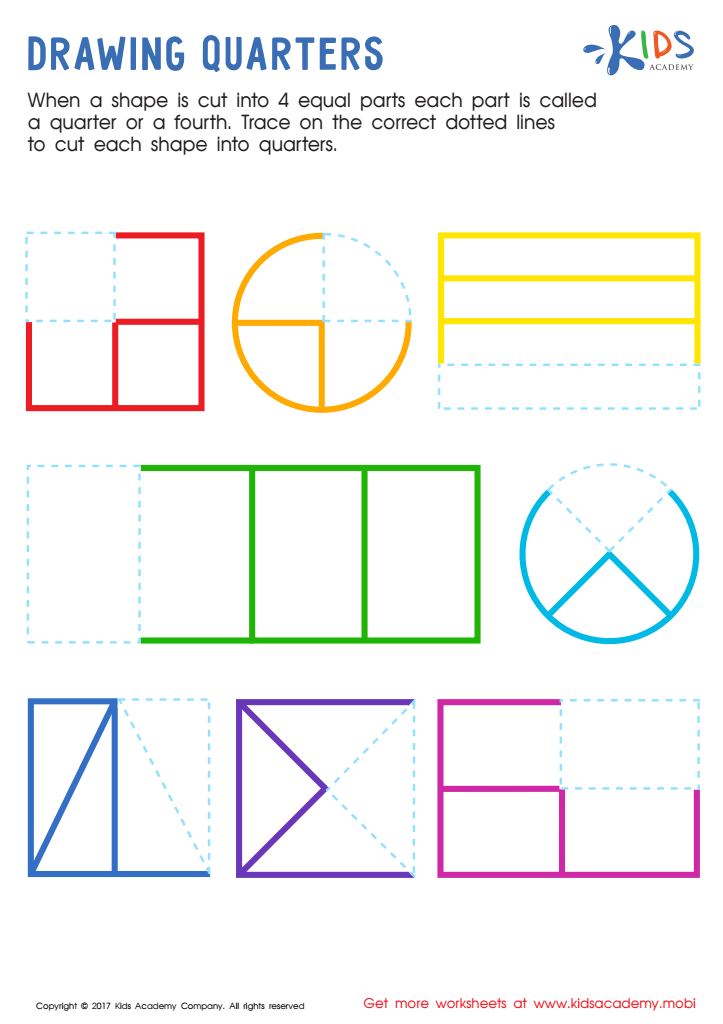

Drawing Quarters Worksheet
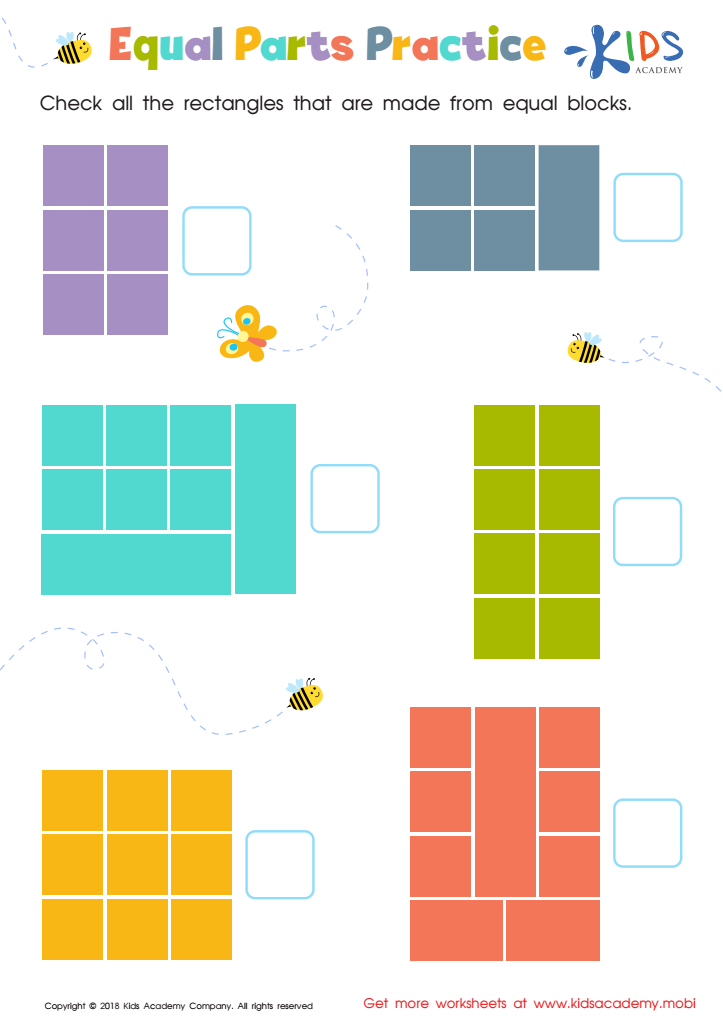

Equal Parts Practice Worksheet
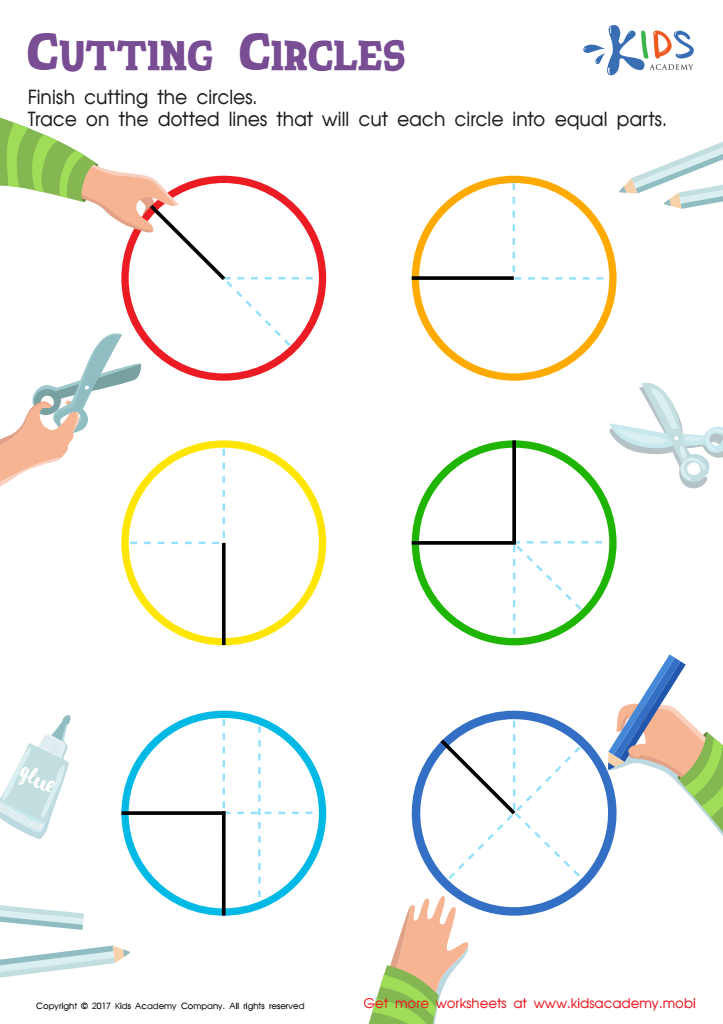

Cutting Circles Worksheet
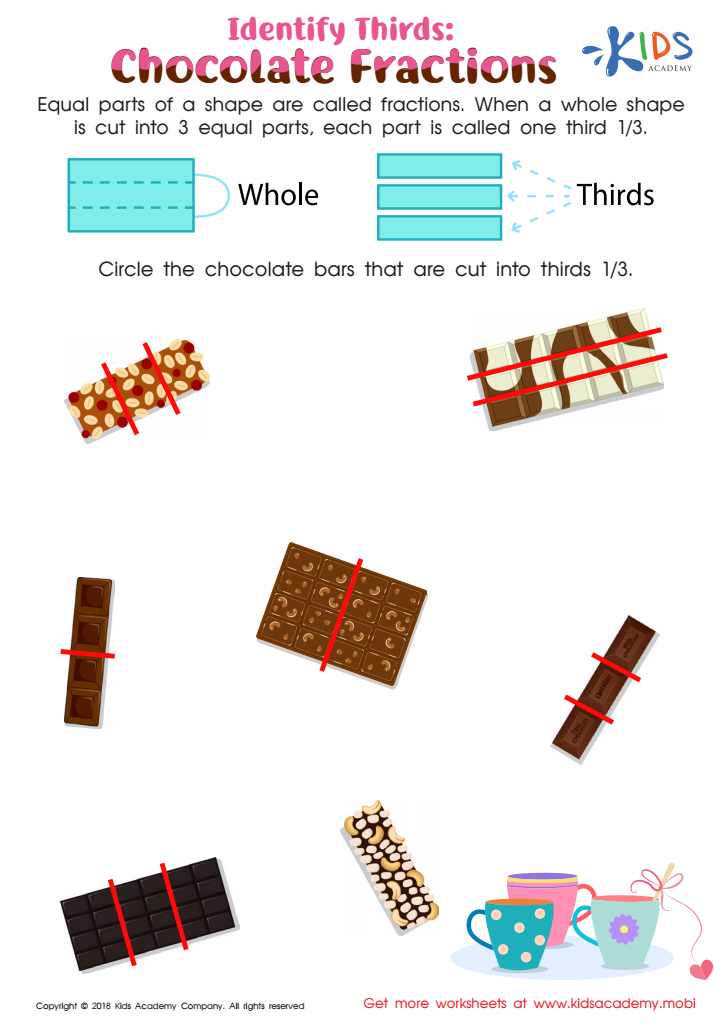

Identify Thirds: Chocolate Fractions Worksheet
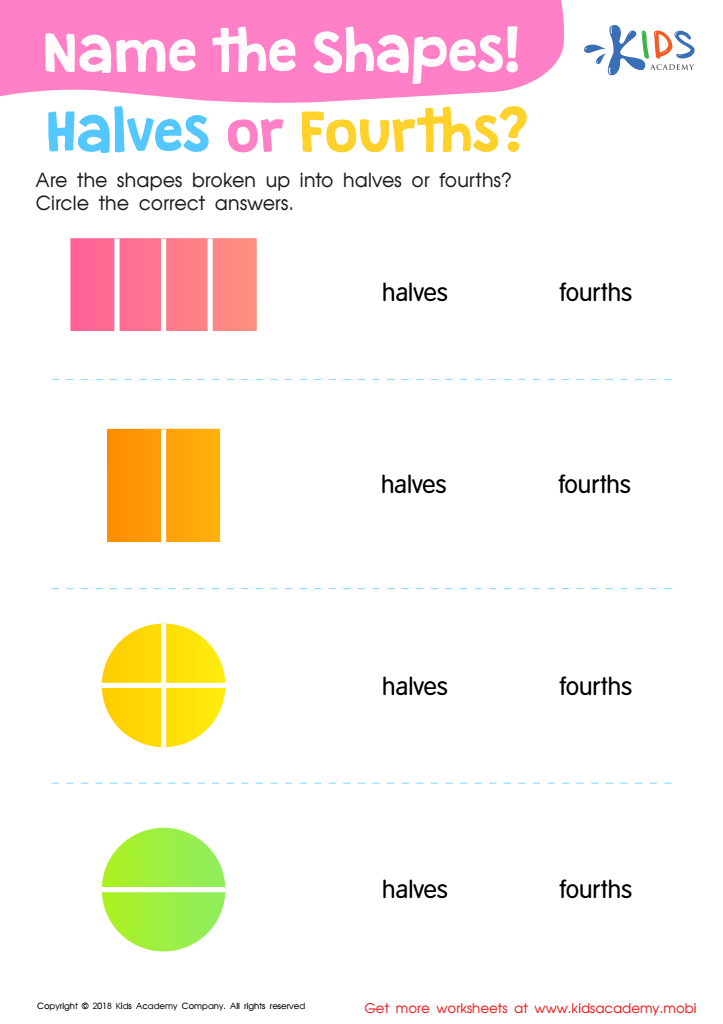

Name the Shapes Halves or Fourths? Worksheet
Understanding fractions of shapes is crucial for children aged 7-9 as it lays the groundwork for more advanced mathematical concepts and everyday problem-solving. Firstly, fractions represent a foundational component of number sense, helping kids grasp the idea that one whole can be divided into equal parts. This concept is crucial not only in mathematics but also in understanding portions in daily life—for instance, when sharing food, measuring ingredients in recipes, or dividing chores.
Additionally, visualizing fractions with shapes aids in cognitive development. By manipulating shapes to comprehend how they can be divided equally, children hone their spatial reasoning and geometric skills. Hands-on activities with fraction tiles, pie charts, or paper folds promote active learning, making abstract concepts tangible and easier to grasp.
From an academic perspective, a solid understanding of fractions contributes to future success in subjects like algebra, geometry, and even science. These skills often correlate with improved performance on standardized tests, elevating academic confidence and achievement.
Lastly, mastering fractions at an early age fosters problem-solving abilities and logical thinking. It encourages children to approach problems methodically and consider relationships between parts and wholes, skills that are invaluable throughout their educational journey and beyond. Therefore, engaging children in fractions of shapes not only supports curriculum goals but also equips them with essential life skills.
 Assign to My Students
Assign to My Students









